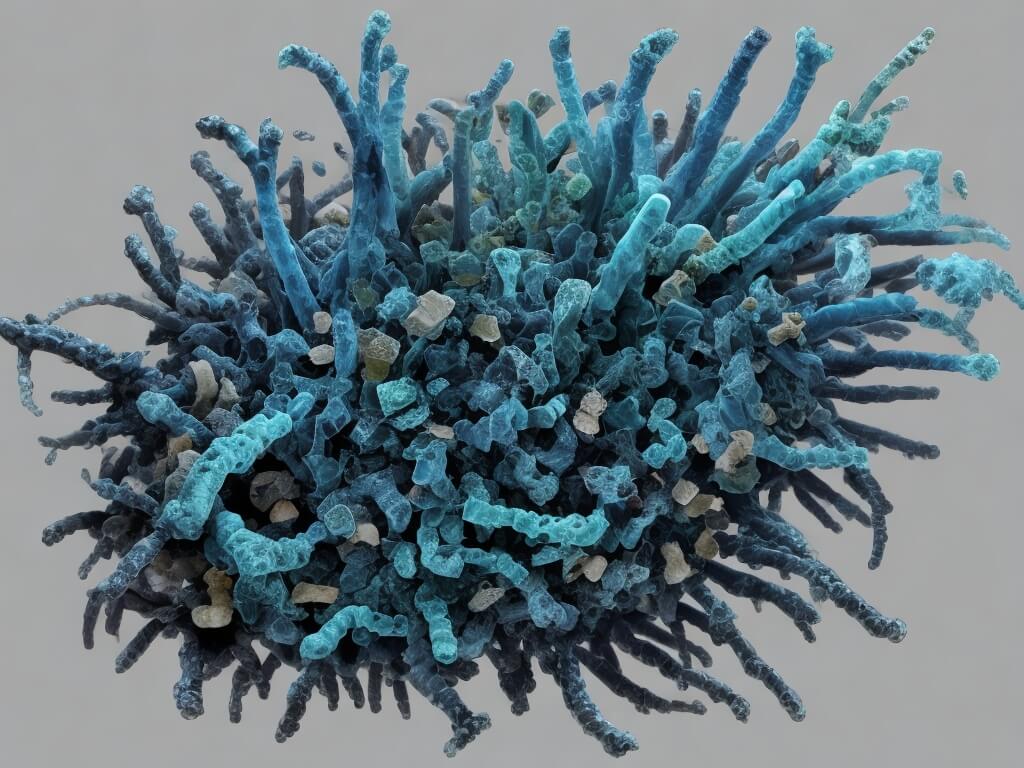
Microbial fuel cells (MFCs) stand at the forefront of cutting-edge energy technology, offering a sustainable and innovative approach to electricity generation. Operating on the principle of harnessing the metabolic processes of specific bacteria, these microscopic powerhouses are revolutionizing the way we think about energy. It’s akin to envisioning miniature power plants on a microbial scale, where nature’s tiniest workers – bacteria – play a key role.
Within the intricate confines of microbial fuel cells, bacteria engage in a remarkable process. They diligently break down organic matter, a feat that releases electrons as part of their metabolic activities. This electron release is where the magic happens. By strategically capturing these electrons, microbial fuel cells can orchestrate a flow of electric current, essentially transforming bacterial metabolic activity into a tangible and usable power source.
The beauty of this process lies in its simplicity and efficiency. Unlike traditional energy sources that often rely on scarce or environmentally taxing materials, MFCs utilize the abundant and renewable resource of organic matter. This could range from wastewater in treatment plants to decaying organic material in soil, showcasing the adaptability and versatility of bacterial batteries.
The potential applications of microbial fuel cells are vast and promising. For example, wastewater treatment plants simultaneously generate electricity. Consider remote or off-grid locations where traditional power sources are impractical, and microbial fuel cells offer a decentralized and sustainable energy solution. The biomedical field is not left untouched, with the miniature size and efficiency of MFCs making them ideal candidates for powering implantable devices, ushering in a new era of self-sustaining medical technology.
As researchers go deeper into the microbial world, refining the efficiency of electron transfer within cells and exploring new bacterial strains, the future of microbial fuel cells appears brighter than ever. The challenges, including optimizing scalability and addressing cost concerns, are actively being tackled in laboratories worldwide. The ongoing advancements in this field position microbial fuel cells as a viable and potentially transformative player in the global pursuit of clean and sustainable energy.
Harnessing Nature’s Powerhouses
The allure of bacterial batteries extends beyond their fundamental principle, delving into the rich diversity of bacteria that can be harnessed for energy production. Bacteria, those microscopic workhorses of nature, exhibit remarkable resilience, adaptability, and ubiquity. Researchers, exploring the vast microbial landscape, have pinpointed specific bacterial strains showcasing extraordinary abilities in diverse environments.
Whether nestled in the nutrient-rich confines of wastewater treatment plants or thriving in the intricate ecosystems of soil and sediments, these bacteria prove their versatility. It’s this adaptability that makes microbial fuel cells a beacon of promise in the sustainable energy production. The ability to tap into various bacterial strains, each adept at thriving in specific conditions, underscores the potential of bacterial batteries to be deployed across a spectrum of applications and environments.
As we uncover the potential within nature’s microbial diversity, the pathway to sustainable energy becomes more apparent. The adaptability of bacterial batteries enhances their efficiency and opens doors to novel applications, positioning microbial fuel cells as a dynamic and flexible solution in the pursuit of a greener and more sustainable energy.
Applications of Bacterial Batteries
Wastewater Treatment
Microbial fuel cells (MFCs) emerge as a groundbreaking solution in wastewater treatment, showcasing a dual-purpose marvel. As bacteria engage in the breakdown of organic pollutants, a remarkable byproduct is generated: electricity. This simultaneous cleansing of water and energy production offers a symbiotic and sustainable approach to addressing two critical challenges. It transforms the conventional wastewater treatment paradigm into an eco-friendly process, where the very act of purifying water becomes a source of renewable energy, demonstrating the potential of microbial fuel cells to revolutionize our energy.
Remote Power Generation
The challenge of accessing traditional power sources looms large. Enter bacterial batteries, poised as a revolutionary force in decentralized energy solutions. Leveraging locally available organic materials, these microbial fuel cells unlock the potential to transform power generation in rural areas worldwide. The adaptability of bacterial batteries to thrive in diverse environments, coupled with their ability to convert organic matter into electricity, signifies a paradigm shift. This addresses the energy needs of remote communities and represents a stride towards sustainable, independent power generation, transcending geographical barriers and bringing light to the farthest corners of our planet.
Biomedical Devices
The marriage of miniaturization and efficiency in microbial fuel cells unveils a transformative potential in biomedical devices. Implantable devices, such as pacemakers or glucose monitors, are powered by the body’s intrinsic biological processes. The compact design and efficiency of bacterial batteries eliminate the need for external batteries and the associated challenges of frequent replacements. This innovation not only promises enhanced longevity for biomedical implants but also reduces the invasiveness of medical procedures, opening new frontiers in medical technology. It’s a glimpse into a future where the synergy of biology and technology creates self-sustaining solutions within the very fabric of our bodies.
Recent Advancements
Recent advancements stand as beacons of progress, reshaping our perception of their potential. Scientists, propelled by a quest for innovation, are delving into avenues that promise to elevate the efficiency and capabilities of bacterial batteries.
A focal point of this exploration is the optimization of electron transfer within microbial fuel cells. Researchers are employing ingenious strategies to enhance the speed and precision of electron flow, ultimately boosting the overall efficiency of the electricity generation process.
Stability is another key consideration. Scientists are dedicatedly working to improve the robustness and resilience of bacterial communities within microbial fuel cells. By creating environments conducive to prolonged bacterial activity, researchers aim to ensure sustained and reliable energy production, a major factor in the practical implementation of MFCs.
The quest for greater electricity-generating capabilities doesn’t stop there. Researchers are actively engaged in identifying new bacterial strains with enhanced metabolic prowess. These microbial powerhouses exhibit the potential to produce even more electrons during the organic matter breakdown process, thus intensifying the power output of microbial fuel cells.
As we witness these strides in microbial fuel cell research, it becomes evident that the potential applications of bacterial batteries are far-reaching. The ongoing efforts to optimize efficiency, enhance stability, and discover new electricity-generating bacteria underscore a commitment to unlocking the full potential of microbial fuel cells.
Bacterial batteries represent a captivating intersection of biology and technology, offering a sustainable and innovative approach to energy generation. As researchers delve deeper into the microbial world, unlocking the full potential of microbial fuel cells, the future holds the promise of cleaner water, decentralized power generation, and a new frontier in bioelectrochemistry. Keep an eye on these microscopic powerhouses – the bacterial batteries – as they charge towards a greener, more sustainable future.

